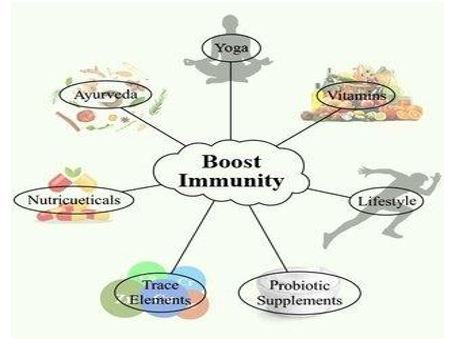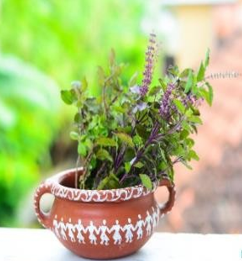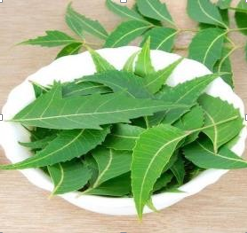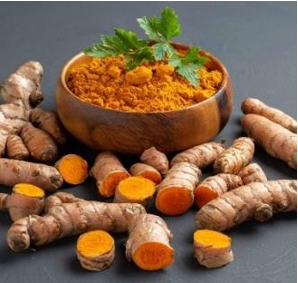Introduction
The term immunity in a biologic context has historically referred to resistance to pathogens; however, reactions to some noninfectious substances including harmless environmental molecules, tumors, and even unaltered host components are also considered forms of immunity (Allergy, tumor immunity, and autoimmunity, respectively). The collection of cells, tissues, and molecules that mediate these reactions is called the immune system, and the coordinated response of these cells and molecules to pathogens and other substances comprises an immune response. The most important physiologic function of the immune system is to prevent or eradicate infections. Types of immunity: Immune system can be divided into two parts-innate and adaptive. Our first line of defence the natural protection power we are born with is innate immunity and this innate response acts quickly. The protection that we gain through life when we are exposed to various diseases or protection against them for vaccination is adaptive immunity, this adaptive immunity generates antibodies when it spots an enemy in the body. The adaptive immunity takes 5 to 10 days to generate antibodies and meanwhile innate immunity keeps fighting to maintain the levels of pathogens.
The immune system is responsible for fighting foreign invaders in the body, like pathogenic bacteria and viruses, and also destroying cells within the body when they become cancerous. Poor nutrition results in increased infections, slow healing from injury and infections, and increases susceptibility to symptoms and complications from immune system dysfunction. Studies show that immune function often decreases with age, and recent research suggests this decrease is also related to nutrition and may be slowed or even stopped by maintaining healthy nutrition. Certain foods may be helpful for boosting the immune system and preventing colds and the flu. Here's a look at five types of nutrients that your immune system needs to perform and which foods to find them in. Your immune system maintains homeostasis by defending against viruses and bacteria which can cause inflammation in the body, illness and disease.
Nutritional deficiencies can impair immune function, increasing both the risk and severity of the infection. The various types of Immunity booster. To boost immunity means intake or consumption of certain food that provides additional benefits to the body. To boost immunity important to take the right kind of foods in the right quantities.1, 2, 3, 4
Herbal immunity booster against covid-19
The expression of the current pandemic goes back to late December 2019, when an instance of unidentified pneumonia was accounted for in Wuhan, Hubei Province, People's Republic of China. Its clinical qualities are somewhat similar to those of pneumonia. After investigation on respiratory examples, China's Centre for Disease Control (CDC) specialists proclaimed that the pneumonia to be novel coronavirus pneumonia, which was brought about by novel coronavirus. Infections are normally named dependent on their hereditary structure in order to make it simple for the advancement of indicative tests, immunizations and medications.
The infections are typically named by the International Committee on Taxonomy of Viruses (ICTV), which makes use of Virologists and other more extensive academic networks. Sicknesses are named to permit examination on avoidance, spread, transmissibility, seriousness and treatment of a specific illness. The sole obligation of WHO is to empower Human infection readiness and reaction, so the official announcement of a malady name is finished by WHO in the International Classification of Diseases (ICD).3, 4, 5, 6, 7, 8, 9
ICTV declared extreme intense respiratory condition coronavirus-2 (SARS-CoV-2) as the name of the new infection on 11 February 2020, as the infection is hereditarily identified with the coronavirus which was answerable for SARS episode of 2003. In spite of the fact that they are connected, yet the two infections were extraordinary. The name COVID-19 was reported by WHO on 11 February 2020, based on recently created rules alongside the World Organization for Animal Health (OIE) and The United Nations' Food and Agriculture Organization (FAO). To fight against different dangerous infections, it is necessary to have a strong immune system. Immunity cannot build in a day or a week, but taking a well-balanced diet to keep our body in good physical and mental health builds our immune system automatically stronger. Immune system is a network of special cells, tissues, proteins and organs. Immunity is the state of protection against infectious disease conferred either through an immune response generated by immunization or previous infection or by other non-immunological factors. Good nutrition is crucial for health, particularly in times when the immune system might need to fight back. Limited access to fresh foods may compromise opportunities to continue eating a healthy and varied diet.10, 11, 12, 13 It can also potentially lead to an increased consumption of highly processed foods, which tend to be high in fats, sugars and salt. Nonetheless, even with few and limited ingredients, one can continue eating a diet that supports good health. This article review describes the various immunity booster and mechanism of the immune system in the human body. Main objective of this review is to provide information about all type immunity boosters and Nutrients available in nature and market.
Herbal Formulation
Herbal formulation shall mean a dosage form consisting of one or more herbs or processed herbs in specific quantities to provide specific nutritions, cosmetic benefits and other benefits means for use of diagnosis, treat, diseases of human being or animal to alter the structure or physiology of human being or animals.
Literature Reviews
Priyanka Namdeo, et al., (2021) reviewed on Herbal Immunity Booster and Nutrition to fight against COVID-19.
Miss Dube Shubhada Bhausaheb, et al., (2020):- A Review on Immunity Booster- A Herbal Remedy To Fight Against COVID-19.
Abhay Baradwaj, et al., (2021 — Herbal immune-boosters: Substantial warriors of pandemic Covid-19 battle.
Essential herbes ingredients to boost immunity
Tulsi is extremely useful for treating bacterial and fungal infections as well as immunological disorders like allergies and asthma. Explaining the benefits of Tulsi, Haritha says, “It is rich in Vitamin C and Zinc and acts as a natural immune booster.
Synonym: Ocimum sanctum
Family: Lamiaceae
Species: O tenuiflorum
Biological Name: Ocimum tenuiflorum
Biological role: 1) Antibiotic 2) Antiviral 3) Anti-stress agent 4) anti- inflamentry 5) Anti-fungal 6) Anti- bacterial
Chemical constituents: Oleanolic acid, Ursolic acid, Rosmarinic acid, Eugenol, Carvacrol, Linalool, and β- caryophyllene.
Uses: Tulsi plant indoors can help protect you from certain infections and diseases such as cold, cough, and viral infections. These strong disinfectant and germicidal factors are not the only reason why Tulsi is a great herb for boosting your immunity.
Neem — Purified extracts of Neem contained immunomodulators that stimulate the cells and macrophages that terminate.
Chemical constituents: A) Neem leaves: Azadirachtin, meliacin, quercitin, nembosterol, ascorbic acid, carotenoids, amino acid etc. B) Neem seed: Azadirachtin C) Neem kernals: oil of margosa. D) Neem barks: Nimbin, nimbinine, nimbidine, nimbosterol, nimbidol and margosin.
Biological source: Neem consists of the fresh or dried leaves and seed oil of Azadirachta indica
Biological role: Neem (Azadirachta indica) plants parts shows antimicrobial role through inhibitory effect on microbial growth/potentiality of cell wall breakdown. Azadirachtin, a complex tetranortriterpenoid limonoid present in seeds, is the key constituent responsible for both antifeedant and toxic effects in insects
Use: Neem helps boost your immune system while cooling down your body internally. It possesses both anti- bacterial and anti-fungal properties that help keep your skin clean, radiant and healthy. Neem also has blood- purifying properties.
Synonyms: Curcuma domenstica valenton
Family: Zingiberaceae
Species: C longa
Binomial name: Curcuma longa
Biological role: 1) Antiseptic 2) Immunomodulater 3) Anti-inflamentry Chemical constituents: Turmeric powder is about 60–70% carbohydrates, 6–13% water, 6–8% protein, 5– Uses- Turmeric is among the richest food source of Iron 67.8mg per 100g of turmeric powder. Iron is important for improve immunities power and turmeric have riches Iron.
Conclusion
People with low immunity are more prone to this world pandemic named as COVID-19. To help or boost the immunity, the various Herbs play a vital role by promoting beneficial bacteria in the body. Various vitamins like C, D, and E are investigated to provide important aspects for improving immunity. Herbs like Withania somnifera, Tinospora cordifolia, Panax ginseng, Emblica officinalis, Zingiber officinale, Curcuma longa, Allium sativum, Aloe barbadensis, Azadirachta indica, Ocimum tenuiflorum, Echinacea perpurea and many more. While other vegetables are rich in vitamin C and are good for immunity. Proper nutrition and hydration improve health and immunity, they are not magic bullets. People living with chronic illnesses who have suspected or confirmed COVID-19 may need support with their mental health and diet to ensure they keep in good health. Future aspects of this account for more research which is needed significantly on physical behaviors or exercises and their role in immunity-related issues thus preventing COVID-19.




